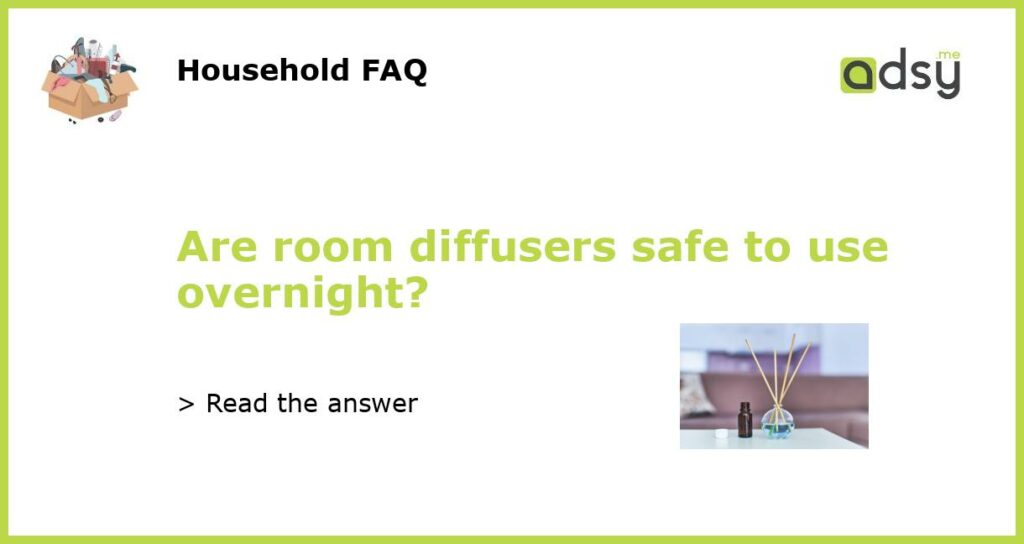Room Diffusers and Their Safety
Room diffusers have become increasingly popular in recent years as a way to freshen up the atmosphere in our homes. These devices release scented oils into the air, creating a pleasant aroma that can help to mask unpleasant odors. However, as with any product that involves the dispersion of chemicals into the air, there are concerns about their safety, particularly when used overnight. In this article, we will explore the safety considerations of using room diffusers overnight to help you make an informed decision about whether or not to use them in your home.
Types of Room Diffusers
Before we delve into the safety concerns, let’s first take a look at the different types of room diffusers available on the market. The most common types include:
- Nebulizing diffusers
- Ultrasonic diffusers
- Evaporative diffusers
- Heat diffusers
Each type of diffuser operates differently, but they all work by dispersing essential oils into the air. It’s important to note that not all diffusers are created equal when it comes to safety, and some may pose more risks than others when used overnight.
Safety Considerations of Room Diffusers
When it comes to using room diffusers overnight, there are a few safety considerations to keep in mind. First and foremost, it’s important to consider the quality of the diffuser itself. Look for a diffuser that is made from high-quality materials and has built-in safety features, such as automatic shut-off timers or low water level sensors.
Another safety concern is the type of oil used in the diffuser. Some essential oils can be irritating to the skin and respiratory system, particularly when used in high concentrations or for extended periods of time. It’s important to use oils that are intended for use in diffusers and follow the manufacturer’s instructions for dilution.
In addition, it’s important to consider the size of the room and the ventilation. Diffusing oils in a small, poorly ventilated room can lead to a buildup of volatile organic compounds (VOCs) in the air, which can cause respiratory irritation and other health problems. If you choose to use a diffuser overnight, it’s advisable to do so in a well-ventilated area or use a diffuser with a timer function to limit the duration of use.
Benefits of Using Room Diffusers Overnight
While there are safety considerations to keep in mind, using a room diffuser overnight can also offer several benefits. The soothing aroma of essential oils can promote relaxation and improve sleep quality, making it an ideal option for those who struggle with insomnia or other sleep disorders. Additionally, certain essential oils have antimicrobial properties, which can help to eliminate airborne bacteria and viruses, potentially reducing the risk of respiratory infections.
However, it’s important to note that the effectiveness of essential oils in combating specific health conditions varies, and more research is needed to fully understand their potential benefits. It’s always best to consult with a healthcare professional before using essential oils for therapeutic purposes.
Conclusion: Making an Informed Decision
At the end of the day, the decision of whether or not to use room diffusers overnight is a personal one. If you are considering using a diffuser in your bedroom while you sleep, it’s important to consider the safety factors mentioned earlier and choose a high-quality diffuser that is designed for overnight use. Additionally, choosing oils that are safe for diffusion and following the manufacturer’s instructions for use can help to ensure a safe and enjoyable experience.
If you have any concerns or pre-existing health conditions, it’s always best to consult with a healthcare professional before incorporating room diffusers into your routine. This way, you can make an informed decision that takes into account your individual needs and circumstances.






